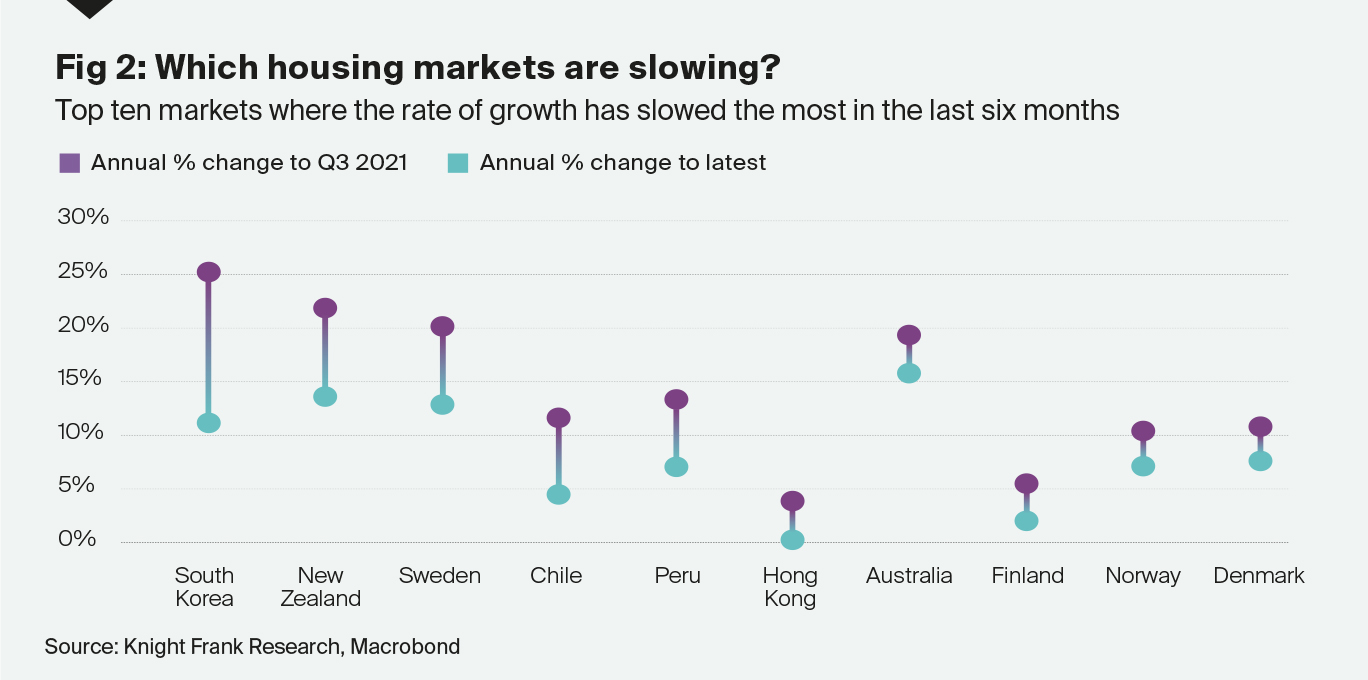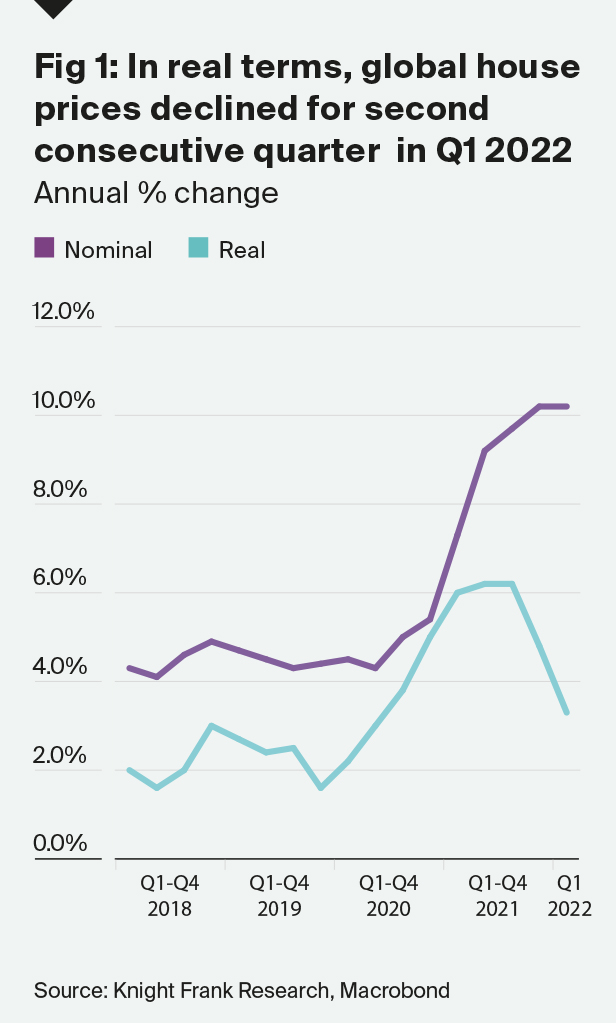House prices register double-digit price growth but for how long?
House prices across 56 countries and territories worldwide increased by 10.2% on average in the year to March 2022.
2 minutes to read
The index tracks nominal and real price growth in local currencies.
Despite mounting headwinds, there are still only two markets (Malaysia and Morocco) where prices declined over a 12-month period. Furthermore, 45% of markets are still registering double-digit price growth on an annual basis. So, why are economists predicting a house price slowdown?

The pandemic, resulting supply chain issues, and the crisis in Ukraine are fuelling global inflation. High inflation means rates will rise pushing up the cost of debt at a time when the cost of living, food and energy prices in particular, are soaring, reducing disposable incomes and the ability of households to relocate or upgrade their homes.
Amongst others, the US, UK, Australia, New Zealand and Canada, all hiked rates in the first quarter and even the dovish European Central Bank is expected to act in July with a view to exiting negative rates in September or even sooner.
But in most cases, we expect a soft landing due to supply constraints, robust household balance-sheets and a greater willingness on the part of homeowners to spend more on their living arrangements following stringent lockdowns.
Strong inflation means the gap between nominal and real house price growth is widening. In nominal terms, house prices across 56 countries and territories are rising at a rate of 10.2%, in real terms (once adjusted for inflation) the figure is closer to 3.3%. The rate of real house price growth has now declined for two consecutive quarters (Fig 1).

Turkey leads the index with nominal price growth breaking into the rarefied three-digit threshold (110%) but subtract its consumer price inflation of 69.9% and the real figure deflates to 30%.
Analysis by world region (omitting Turkey’s stellar growth) shows North America outperforms with average growth of 18.6%, followed by Europe (11.6%) and Asia-Pacific (6.4%).